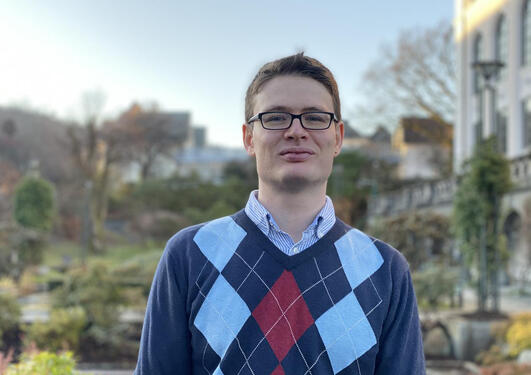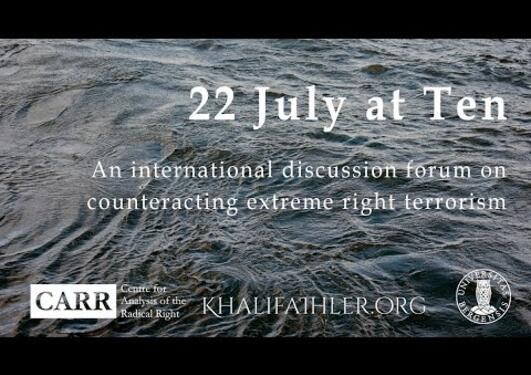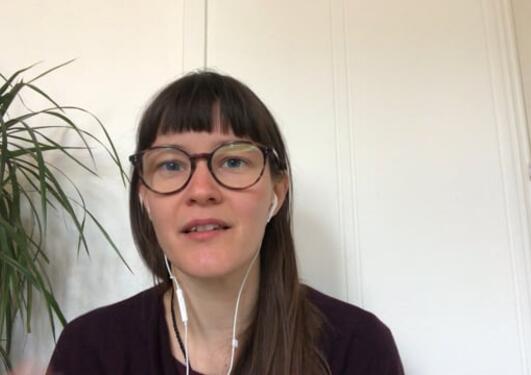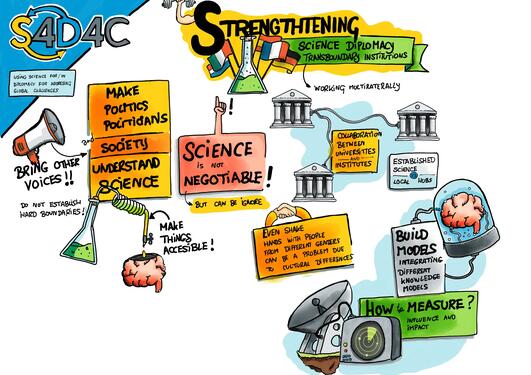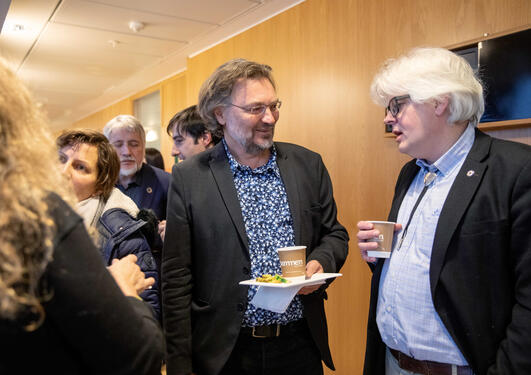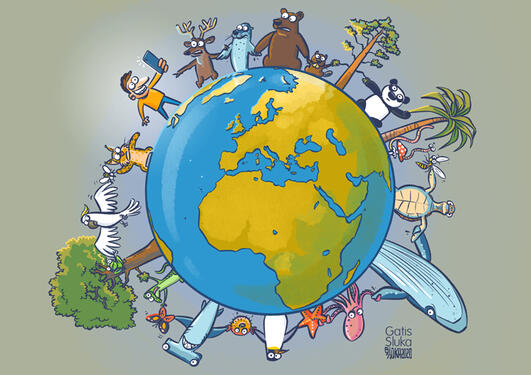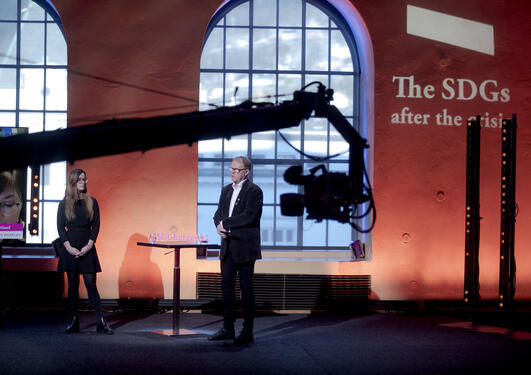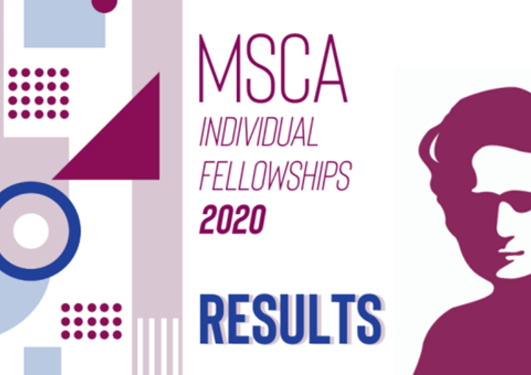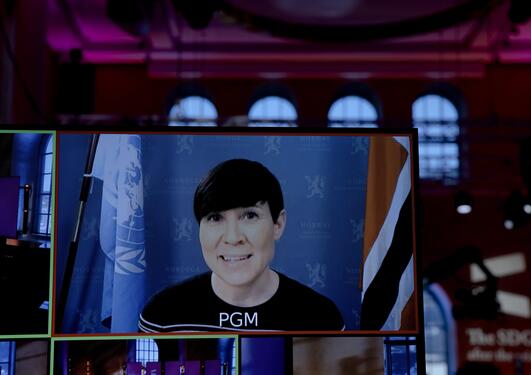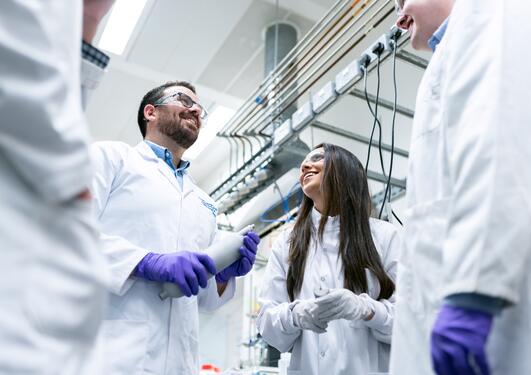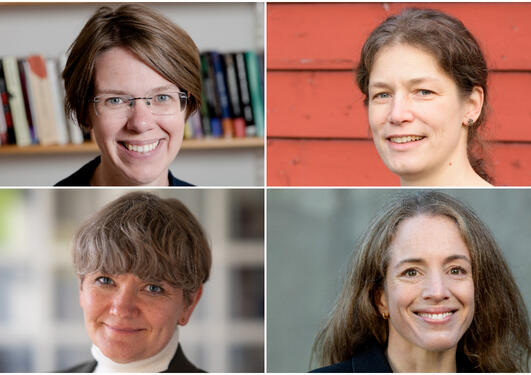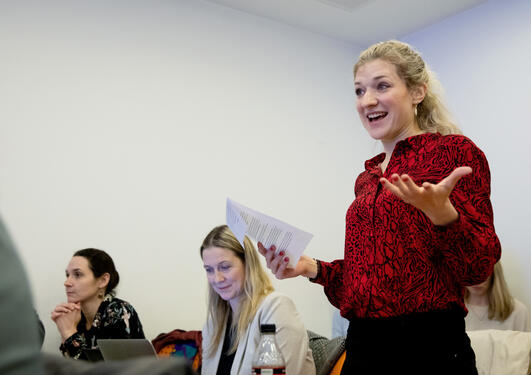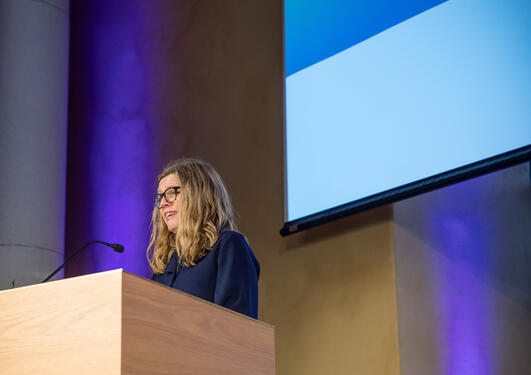News archive for Research
Researchers at UiB have developed a calculator that can estimate how many life years you could gain by modifications in diet patterns.
In a recent editorial, UiB professor Jeroen van der Sluijs and co-editors encourage entomologists to join other scientists, legislators and policymakers in addressing and countering pollinator decline.
Linguist Vadim Kimmelman is one of two young, outstanding researchers in Norway who will participate in the Young CAS Fellow programme. He will do research on sign linguistics and whole‐entity classifiers.
What can society and global organizations do better to stop right-wing extremist radicalization and terrorist content online?
UNESCO has announced Postdoctoral fellow Alicia May Donnellan Barraclough as one of five global Young Spokespeople for its Man and Biosphere programme.
“Science is not negotiable, but it can be ignored,” said Professor Edvard Hviding in a debate on transboundary institutions at the S4D4C final networking meeting.
The Research Council of Norway is supporting the establishment of the Norway-EU Science Diplomacy Network with NOK 1 million. This is the first time SDG Bergen is partner in a research grant.
On World Wildlife Day 3 March 2021, the University of Bergen becomes the first Norwegian institution and first university worldwide to join the European Commission’s Global Coalition United for Biodiversity.
Is investing in coastal and marine ecosystem restoration and protection the way to stimulate the blue economy post COVID-19? This was one of the questions in a special parallel session on coastal communities at the 2021 SDG Conference Bergen.
The University of Bergen receives nine Individual Fellowship grants from Marie Skłodowska-Curie Actions for 2020. Five grants go to The Faculty of Mathematics and Natural Sciences.
A global audience of more than 2,600 watched as Norway’s Foreign Minister Ine Eriksen Søreide opened the 2021 SDG Conference Bergen discussing issues of climate change, stable institutions and inequality as the conference went virtual – and viral.
REV Ocean partners with University of Bergen to support the UN Decade for Ocean Science (16.02.2021)
REV Ocean and the University of Bergen (UiB) signed an agreement February 16th which marks the beginning of an ambitious partnership focused on innovative ocean solutions and support for a sustainable ocean economy.
The UN Ocean Science Decade gets off to a flying start through the University of Bergen’s new interdisciplinary SEAS Fellowship Programme.
For the next 5 years, UiB will be training a new generation of marine research leaders and decision makers to ensure sustainable oceans.
14 projects from the University of Bergen have received funding for a total value of 290 million Norwegian kroner from the NORHED II programme.
The University of Bergen is involved in four new projects to receive funding from the Worldwide Universities Network’s Research Development Fund, which focusses on global challenges towards the 2030 Agenda.
Elisabeth Ivarsflaten, Nele Meckler, Ragnhild Muriaas, and Inga Berre have been awarded the prestigious ERC Consolidator Grant.
At the Diplomacy 2.0 event, Joanna Siekiera from the University of Bergen spoke on the subject of water diplomacy as a field of science diplomacy.
“It is vital for Norway to have a national action plan for the Sustainable Development Goals and only natural for academia to inhabit a key role by contributing with research-based knowledge and critical thinking on the goals,” says Vice-Rector Annelin Eriksen at the University of Bergen.
Pages
- March 2026 (1)
- February 2026 (2)
- January 2026 (1)
- December 2025 (4)
- November 2025 (1)
- October 2025 (3)
- September 2025 (2)
- August 2025 (1)
- July 2025 (3)
- June 2025 (4)
- April 2025 (5)
- March 2025 (3)
- February 2025 (7)
- January 2025 (2)
- December 2024 (1)
- November 2024 (3)
- October 2024 (3)
- September 2024 (3)
- August 2024 (1)
- July 2024 (2)
- June 2024 (5)
- May 2024 (1)
- April 2024 (3)
- March 2024 (4)
- February 2024 (2)
- January 2024 (3)
- December 2023 (6)
- November 2023 (6)
- October 2023 (6)
- September 2023 (5)
- August 2023 (3)
- June 2023 (4)
- May 2023 (4)
- April 2023 (5)
- March 2023 (6)
- February 2023 (2)
- January 2023 (3)
- November 2022 (5)
- October 2022 (4)
- September 2022 (4)
- August 2022 (1)
- June 2022 (2)
- May 2022 (1)
- April 2022 (3)
- March 2022 (3)
- February 2022 (2)
- October 2021 (1)
- September 2021 (1)
- August 2021 (1)
- March 2021 (5)
- February 2021 (4)
- December 2020 (4)
- November 2020 (4)
- October 2020 (2)
- September 2020 (1)
- July 2020 (2)
- June 2020 (6)
- May 2020 (2)
- April 2020 (2)
- March 2020 (1)
- February 2020 (2)
- January 2020 (2)
- November 2019 (1)
- October 2019 (4)
- September 2019 (2)
- August 2019 (2)
- July 2019 (5)
- June 2019 (2)
- May 2019 (1)
- April 2019 (2)
- March 2019 (2)
- February 2019 (3)
- January 2019 (2)
- December 2018 (1)
- November 2018 (3)
- October 2018 (2)
- August 2018 (1)
- July 2018 (3)
- June 2018 (3)
- May 2018 (2)
- April 2018 (3)
- March 2018 (1)
- February 2018 (3)
- August 2017 (2)
- June 2017 (2)
- May 2017 (1)
- April 2017 (5)
- March 2017 (4)
- January 2017 (1)
- December 2016 (1)
- November 2016 (1)
- October 2016 (2)
- August 2016 (1)
- May 2016 (1)
- March 2016 (1)
- February 2016 (2)
- January 2016 (2)
- December 2015 (2)
- November 2015 (1)
- August 2015 (1)
- June 2015 (1)
- December 2013 (1)


